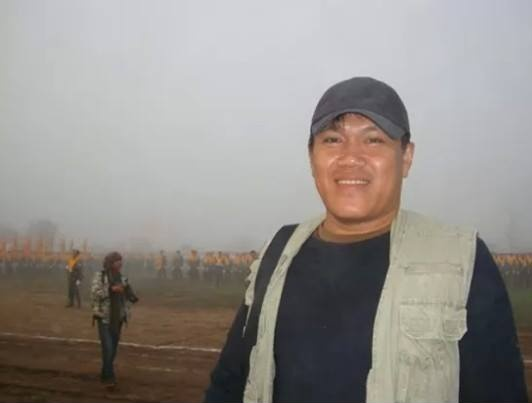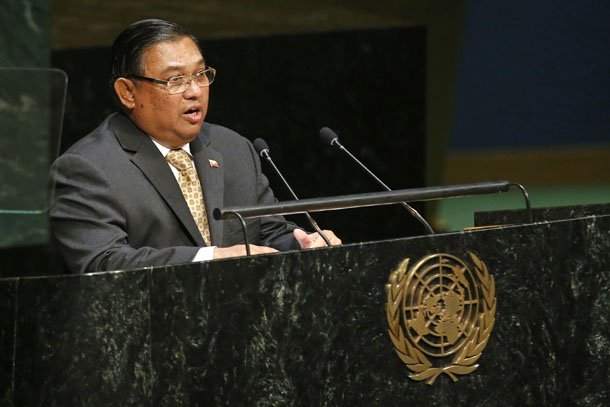Posts Tagged ‘Assistance Association for Political Prisoners – Burma’ (83 found)
AAPP calls for adequate healthcare for political prisoners in Burma
The Assistance Association for Political Prisoners (Burma), also known as AAPP, has received reports over recent months regarding the deterioration of the health of several political prisoners in Burma’s prisons, raising serious concerns […]
• • •Justice for the Killing of Journalist by Burma Army Must be Found
 News of the murder of a journalist by the Burma Army while being held in custody should send shockwaves across the country and beyond, but sadly it is not much of a surprise for those who are aware of the abusive nature of the most powerful institution in Burma. What will transpire next will be a clear indicator of the Government’s will to pursue justice and end the impunity that the Burma Army has enjoyed for so long. Not many are optimistic.
News of the murder of a journalist by the Burma Army while being held in custody should send shockwaves across the country and beyond, but sadly it is not much of a surprise for those who are aware of the abusive nature of the most powerful institution in Burma. What will transpire next will be a clear indicator of the Government’s will to pursue justice and end the impunity that the Burma Army has enjoyed for so long. Not many are optimistic.
Aung Kyaw Naing, also known as Ko Par Gyi, was a freelance journalist covering the recent clashes in eastern Burma between the Democratic Karen Benevolent Army (DKBA) and the Burma Army and its’ proxy Border Guard Force (BGF). After visiting Kyaikmayaw, Mon State, the scene of heavy clashes in September 2014, Ko Par Gyi went missing. His wife, Ma Than Dar, began to search for him and held a press conference on 21 October in Rangoon stating that he was being held in custody by the Burma Army and demanded his immediate release. Just a few days later, a statement was issued to the Myanmar Press Council (Interim) by an aide to commander-in-chief of the armed forces, Min Aung Hlaing, that detailed Ko Par Gyi’s death while in custody. The statement claims that Ko Par Gyi was a captain for the Klohtoobaw Karen Organization (KKO), the political wing of the DKBA, and was shot dead while trying to escape. The DKBA has denied that Ko Par Gyi was indeed a member of their organization […]
• • •AAPP’s Statement Regarding the Death of Freelance Journalist Aung Kyaw Naing, aka Par Gyi
The death of well known freelance journalist Aung Kyaw Naing, aka Par Gyi, while in military custody in Kyaikmayaw Township, Mon State, comes as a shocking reminder of how extrajudicial killings, arbitrary detention and torture are still being used against citizens in Burma […]
• • •AAPP (B) Submission to the UN General Assembly
AAPP has submitted a report to the 65th UN General Assembly reminding the Burmese Government of its commitment to signing on to the UN Convention Against Torture (UNCAT). The report references a statement by Deputy Minister of Foreign Affairs Thant Kyaw, who earlier this year announced that Burma would indeed be signing the covenant in September of 2014. However, no such action was taken last month. The reports highlights a number of instances of torture that have occurred thus far in 2014, and concludes by urging the international community to “apply what pressure they can as part of the global effort to afford every human being the right to be free of torture.” […]
• • •“Winds of Change” Blow a Gale of Human Rights Abuses
 Burma’s Foreign Minister, Wunna Maung Lwin, gave a glowing report on the progress towards democracy and respect for human rights in Burma at the UN General Assembly (UNGA) yet given the deteriorating human rights situation on the ground, it is difficult not to view his words as a North Korean-esque sting in the tail.
Burma’s Foreign Minister, Wunna Maung Lwin, gave a glowing report on the progress towards democracy and respect for human rights in Burma at the UN General Assembly (UNGA) yet given the deteriorating human rights situation on the ground, it is difficult not to view his words as a North Korean-esque sting in the tail.
Wunna Maung Lwin specifically requested that Burma be taken off the agenda of the Human Rights Council as well as the Third Committee of the UNGA, citing that “all major concerns related to human rights have been addressed to a larger extent in the new Myanmar.” Yet on closer inspection, this statement is preposterous, with the realities on the ground providing a striking contrast to these words.
Remarking on the peace process, the government is apparently “serious in its commitment” to making this work. The problem is that the government and the Burma Army say and do different things. As the government is making promises to ethnic armed groups, the Burma Army is still launching offensives in Kachin State and northern Shan State. Even with groups that have a ceasefire, the Burma Army continues its aggression, as seen in Kyeithi Township, Shan State over the weekend where it attacked Shan State Army – North positions yet again. Around 300 villagers have been forced to flee in this township alone in recent months due to attacks. This is emblematic of the current state of the peace process, where too much attention has been placed on the signing of a nationwide ceasefire agreement. Yet as recent clashes indicate, a ceasefire simply isn’t enough to rein in the Burma Army, and this state of affairs remains volatile, as the recent briefing paper produced by Burma Partnership explains […]
• • •Two New Briefers: The State of Burma’s Peace Process and Shrinking Space for Civil Society in Burma
Burma Partnership has produced two new briefing papers in connection with Burma-related advocacy at the current 69th session of the UN General Assembly […]
• • •New report by Network for Human Rights Documentation-Burma (ND-Burma) Documenting On-going Human Rights Abuses in Burma
ND-Burma has published its periodic report covering the first half of 2014, focusing on 103 documented cases of human rights violations in Burma from January to June, 2014. There are many serious human rights issues highlighted in this report: torture, extra-judicial killing, illegal arrests and detentions, arbitrary taxation, property crime, forced labor, human trafficking, forced displacement and rape […]
• • •AAPP-B and FPPS Joint Statement
The end of 2013 saw numerous government statements that convinced much of the outside world that all political activists had been freed from Burma’s jails. These statements not only served to undermine the plight of those political activists still in jail at the beginning of 2014, but also shifted focus away from the ongoing restrictions and harassments of political activists. In 2014, there have been 85 people charged under Article 18 of the Peaceful Assembly Law, Section 505 (b) of the Penal Code, Section 447, and a number of other laws. AAPP currently recognizes at least 59 political prisoners detained across Burma […]
• • •The Use of Section 18 to Continue Human Rights Abuses in Burma
Section 18 of the Peaceful Assembly and Peaceful Procession Law is being frequently utilized to arrest and imprison political activists for undertaking human rights activism in Burma. AAPP (B) wishes to highlight the ongoing human rights abuses section 18 permits and to make the international community aware of the dangers this poses to the political freedom in Burma […]
• • •73 Prisoners Freed in Latest Presidential Release
Assistance Association for Political Prisoners (Burma) welcomes the 23rd July release of seventy-three prisoners from prisons across Burma. AAPP (B) will seek to provide support to each of the political prisoners who have been released. Wherever possible, individuals will receive assistance to cover the cost of medical checkups upon leaving prison, as well as for any subsequent medical care they may require. AAPP (B) will continue to provide extensive support and assistance to newly released political prisoners wherever we are able to […]
• • •








 All posts
All posts